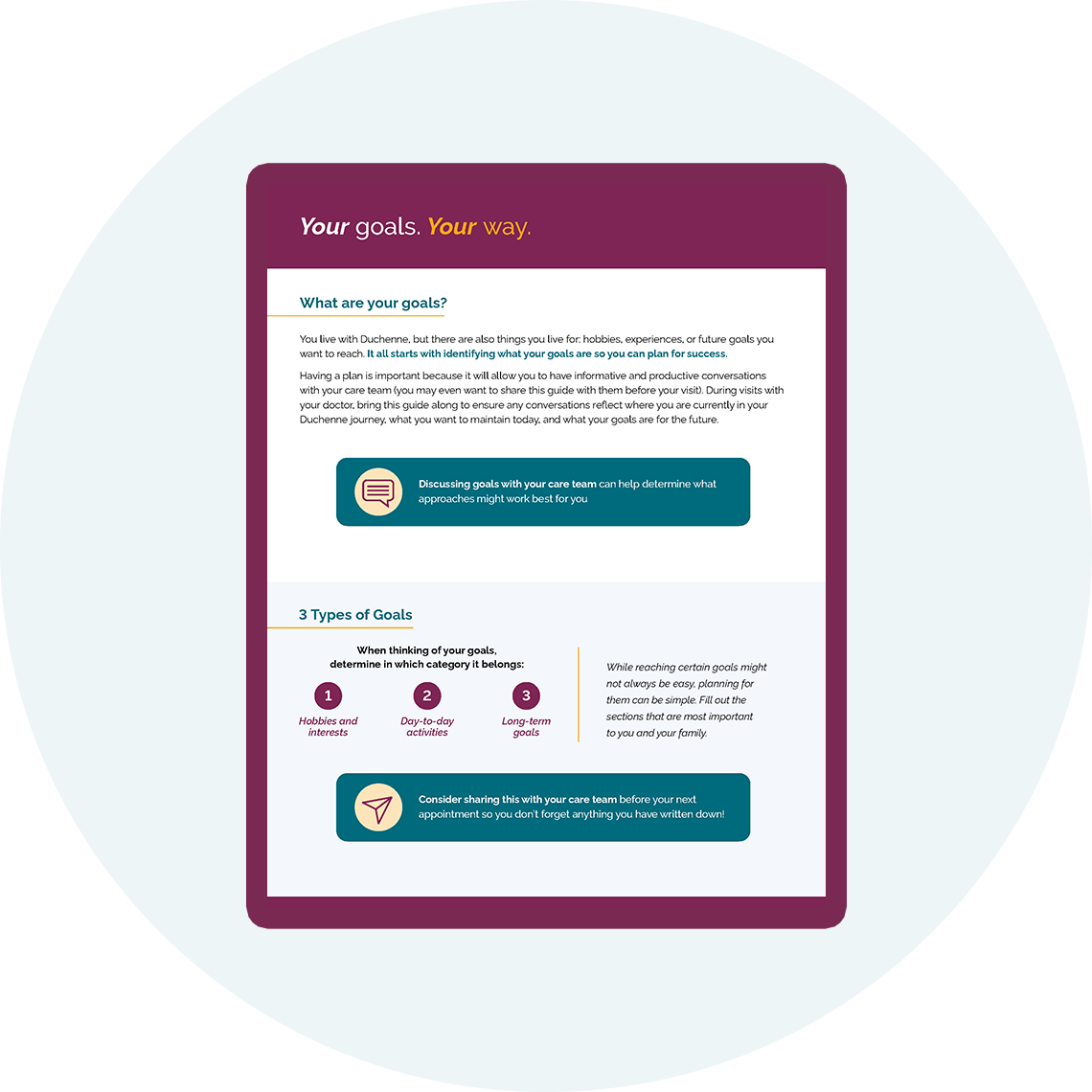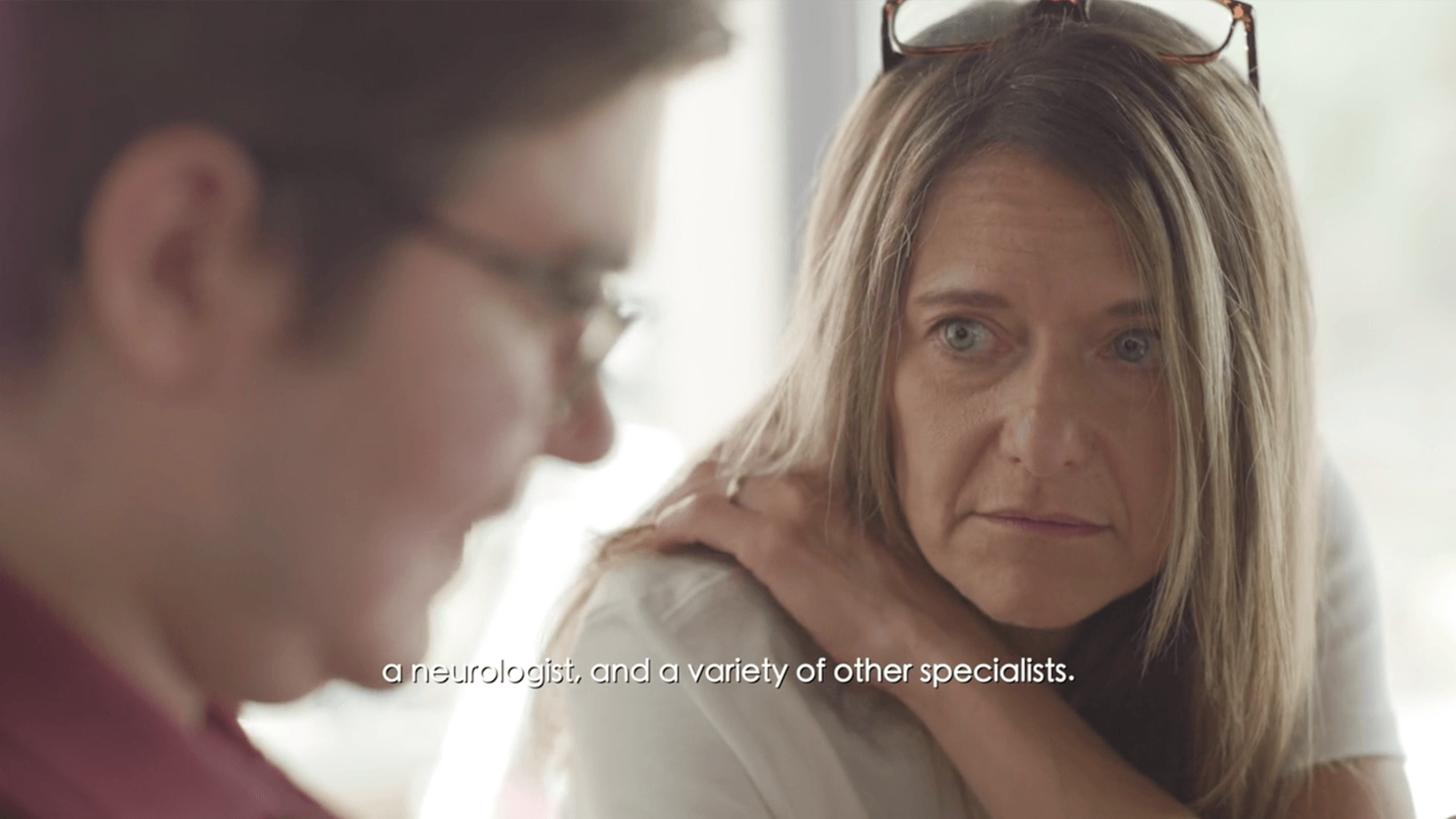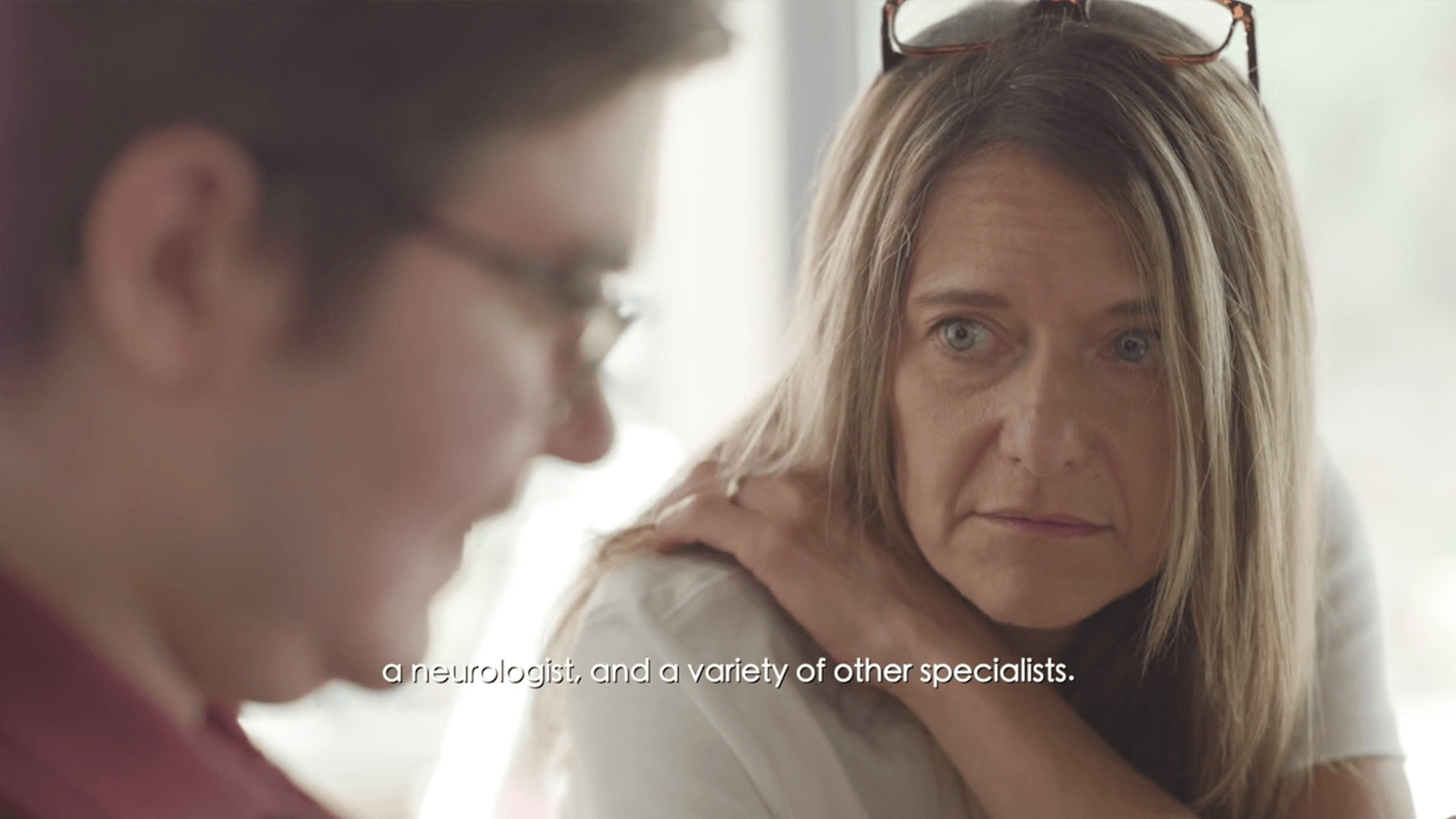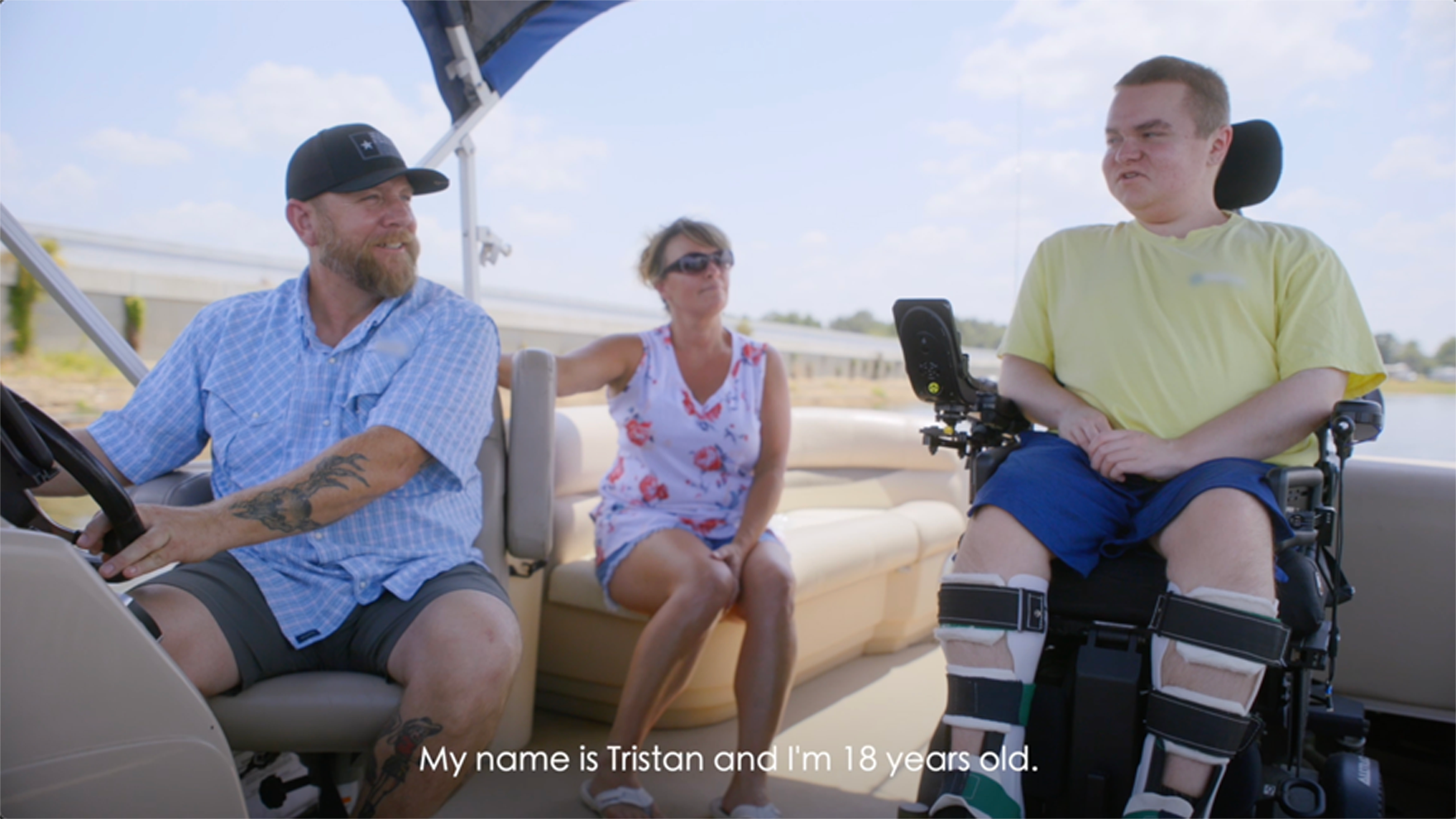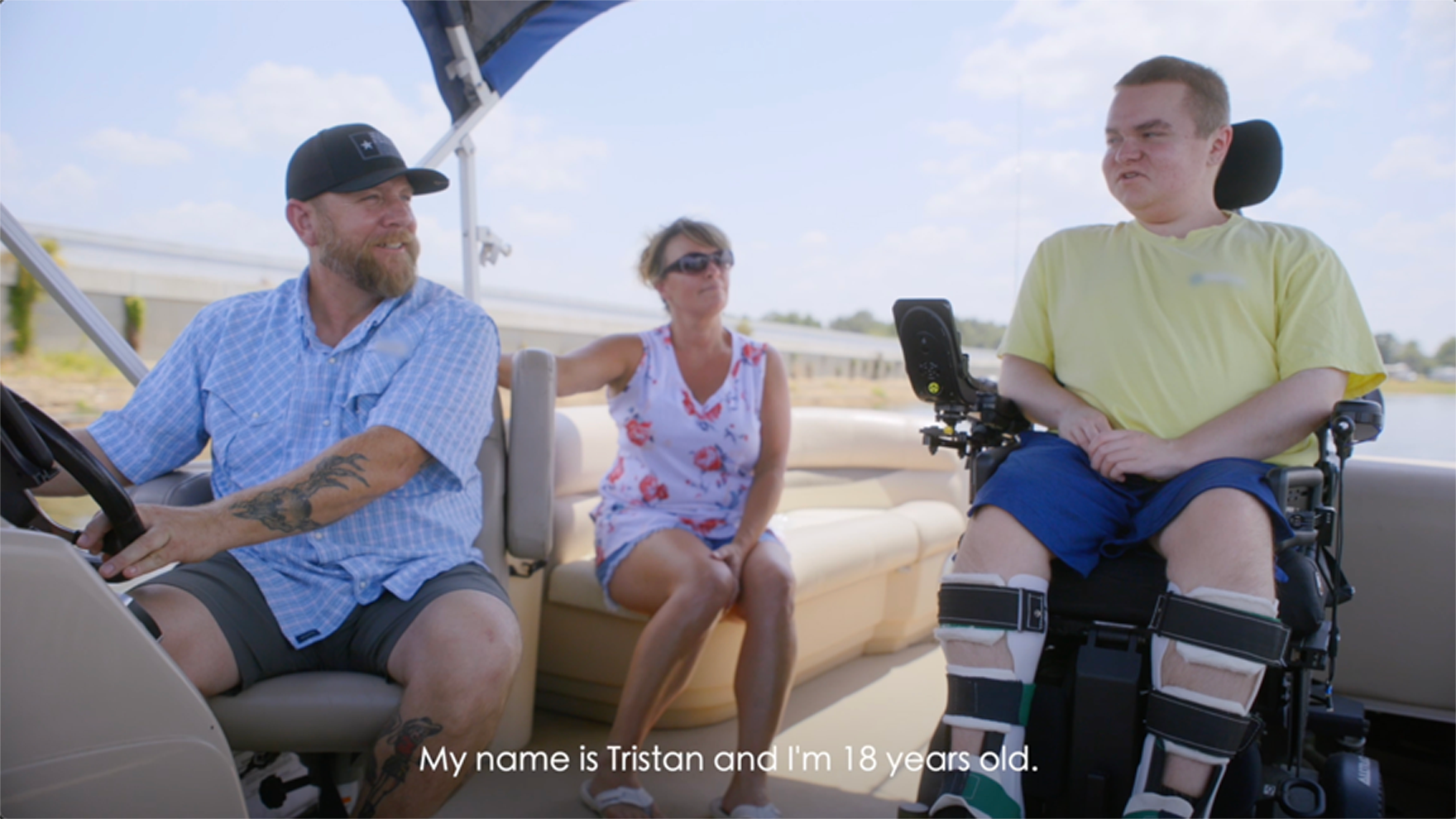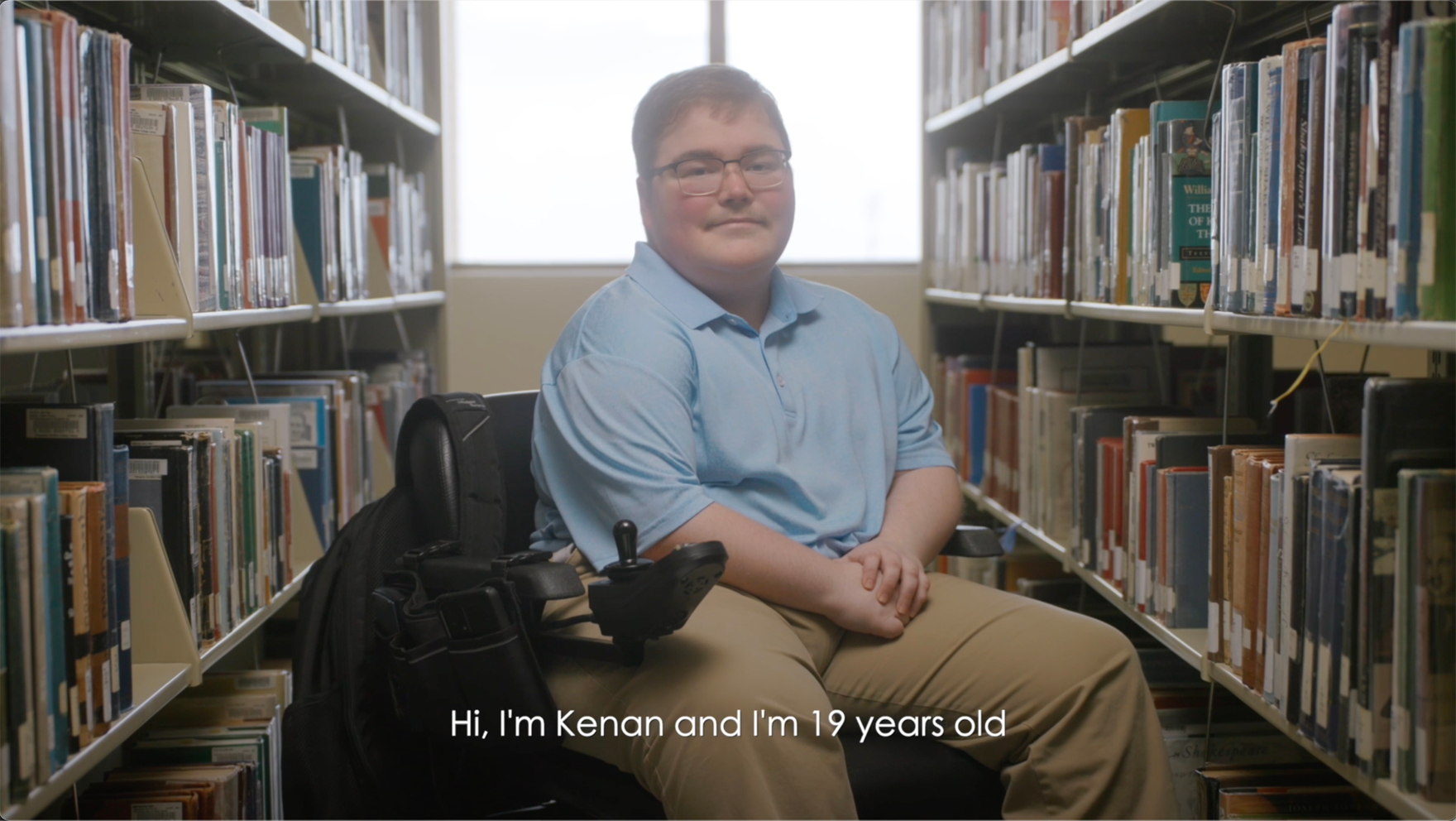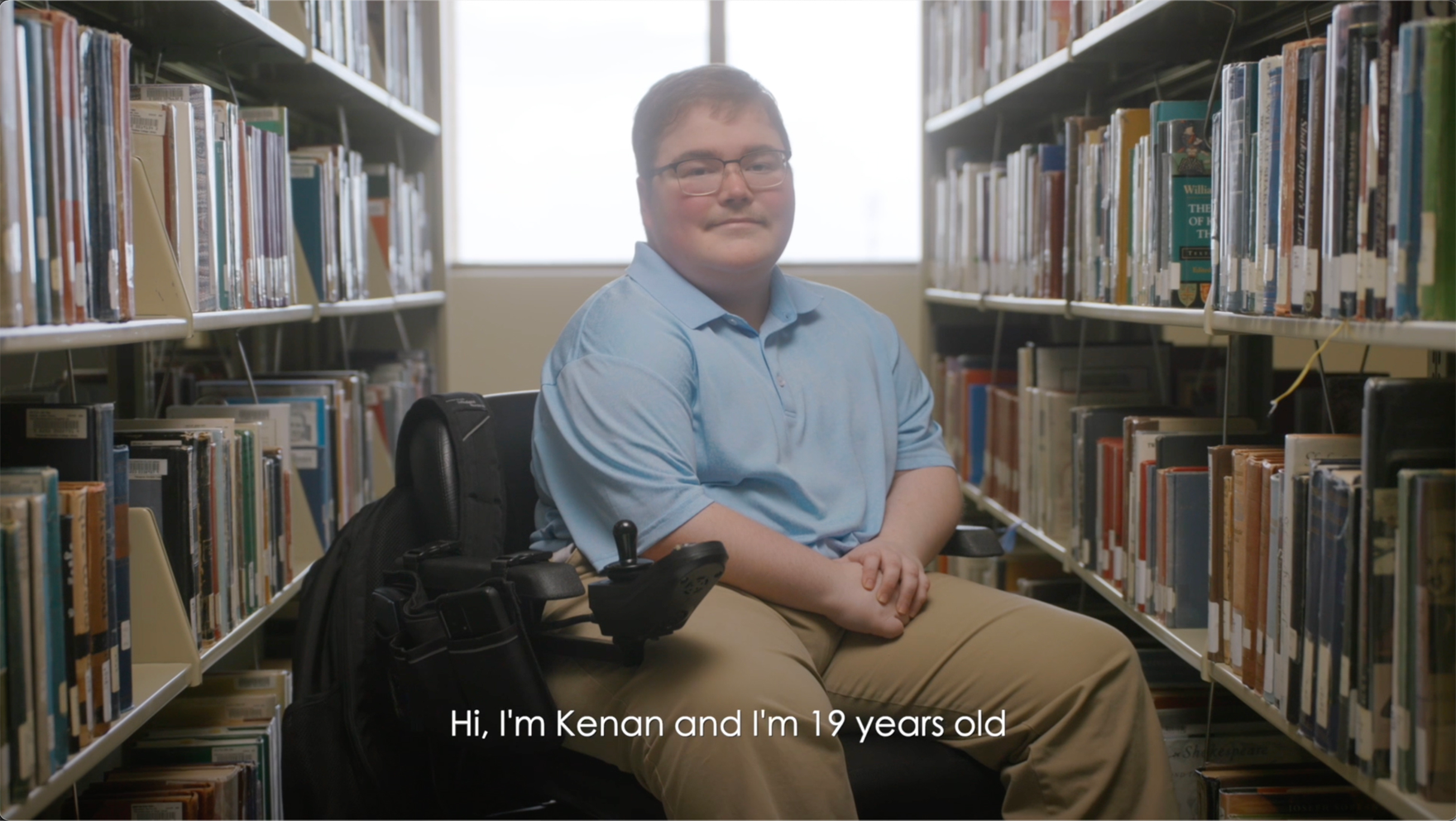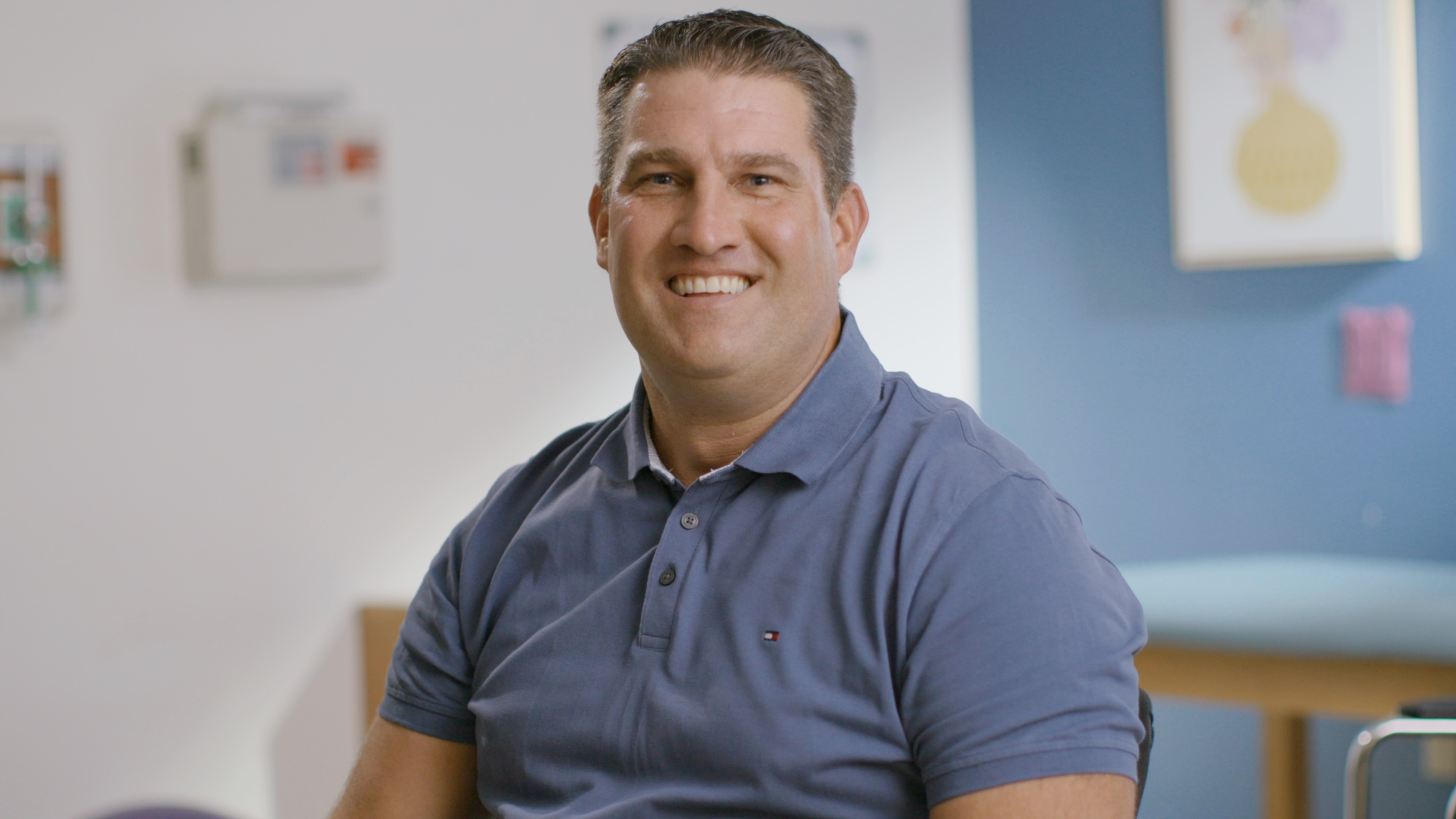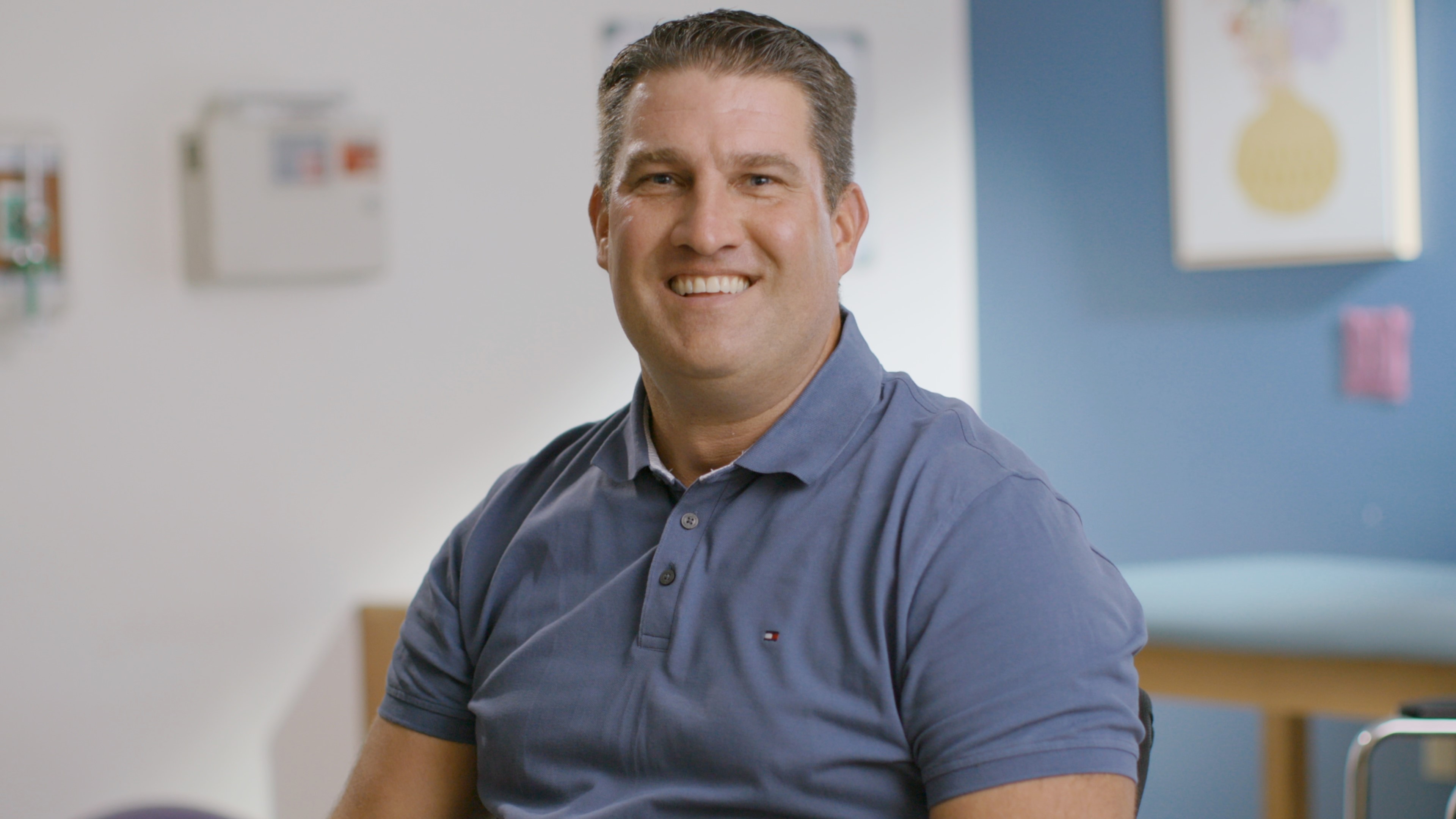
CALEB, living with Duchenne.
Duchenne and Independence
Working Together to Set Goals and Maintain Independence
Independence is an important part of becoming an adult—whether it’s adjusting to freshman year, learning to drive, applying to college, or starting a job. People living with Duchenne have had to find unique ways to adapt to these milestones.
For those in more advanced stages of Duchenne, preserving upper limb function remains important in maintaining independence over time. The ability to continue doing everyday things like eating, drinking, getting dressed, and using the bathroom, can make all the difference.
Whether your focus is on hobbies, experiences, or goals for the future, it’s important to identify those goals so you can plan for success. Discussing them with your care team can help determine what approaches might work best for you.
Survey Highlights the Profound Importance of Maintaining Independence
The Acknowledging Voices in Duchenne (AVID) survey developed in partnership with Team Joseph, included 109 individuals living with Duchenne 12 years of age and older, as well as 49 caregivers. The survey shares relatable insights on the impact of independence, as well as the importance and desire for open communication with Duchenne healthcare teams. The goal of this survey is to shed a light on the interactions between Duchenne families and their care team and define opportunities for increased engagement at your next office visit.
What are three ways you can use this information at your next appointment?
- Raise your voice – allow this to help you in discussions with your care team when describing day to day activities that are meaningful and support your independence
- Act with urgency– for regular and honest conversations that help optimize your care plan and treatment decisions
- Advocate – allow this community sample to be another advocate for open conversations that address you as whole person and encourage the goals that are important to you today and in the future
Setting Goals for the Future
When thinking about where you are in life now and what you hope to achieve next, discussing goals with your care team can help determine the best course of action to help get you there.
Whether you're applying it to hobbies or short-term and long-term plans, use this interactive guide to help set, discuss, and achieve your goals.
John's Journey With Duchenne
Getting to Know Tristan and Kenan
Meet two young men living with Duchenne and learn how they navigate their lives as they move into adulthood.
Tristan and Kenan may be living with Duchenne, but they are also living busy and fulfilling lives. Both have channeled their talents and interests to shape their futures. Watch their videos to understand their perspectives on life, mobility, and what independence means to them.
Support, By Your Side
With new milestones may come new questions. SareptAssist is here to support your family throughout your Duchenne journey.


